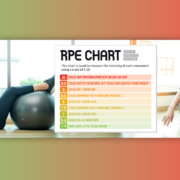Chelation Therapy: Too Soon to Judge
The results of the study on chelation therapy in subjects with diabetes showed a reduction in cardiovascular incidents during the follow-up time. No single event dominated, ranging from heart attack to stroke to death, but overall there were fewer incidents. Subjects who did not have diabetes did not experience a benefit in v incidents during the same follow-up time.
That led the researchers to speculate why. They couldn’t come up with any specific reason other than the chelation must involve a mechanism that was not yet identified. They carefully suggested that while the results were positive, this study could only suggest that larger clinical trials were necessary and the findings do not constitute enough evidence to be recommended as a treatment.
Should You Do It?
Here a few more things to consider:
- The cost: each session costs $90 to $150 and there should be at least 30-40 of them. Add office visits and the total price could be around $5,000; none of it is covered by insurance.
- All the subjects continued to use their typical medications for diabetes, cholesterol, and blood pressure. This was not replacing traditional treatments, it was in addition to the treatments.
- The investment of time was significant at three-plus hours once a week or on whatever schedule the patient and doctor agree upon.
The Bottom Line
This study demonstrated a small cardiovascular benefit to the patients, reducing the risk of a cardiovascular event from 35% to 25%. In my opinion, the results are too small to justify the cost of money or time.
I know people who swear by chelation therapy, and I’m happy it worked for them, but there’s too much we don’t know. Nobody tracks what is actually changed in the body during chelation. Where do the heavy metals go? What if someone doesn’t process metals the same way to eliminate them? At this point, there are more questions than answers.
Here’s an idea. Spend the money on more vegetables and fruit for your diet. Invest the three hours per week in additional exercise. Both of those things will give you a better return on your investment than chelation therapy.
Eat less. Eat better. Move more.
What are you prepared to do today?
Dr. Chet
Reference: Circ Cardiovasc Qual Outcomes. 2014;7:15-24









